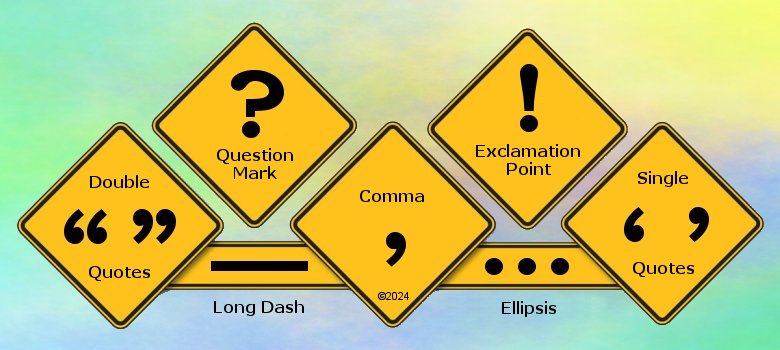
PUNCTUATION
Rules of the Writing Road
[©2025 Terri Branson • All rights reserved]
Using simple punctuation with consistency makes both fiction and non-fiction works easier to read and to understand.
Here are a few punctuation marks fiction writers should avoid, except when necessary: double-punctuation, semi-colons, parentheses, brackets (plain or fancy), forward slashes, and special symbols.
The only font formatting that should be used in fiction is Italics. Never use underlines and bold.
Do not overuse ellipses and long dashes. When used sparingly, both signal clear emphasis to the reader. When used too much, readers may consider them routine and annoying.
When writing fiction, avoid using special symbols, such as superscripts and subscripts. The main reason is because they might not be supported by all devices when reading ebooks. If a device does not have the font pack to support certain special symbols, it may display strange coding. While it's true that using some branded terms may require the use of a trademark or registration superscript, there is no guarantee that the symbol will be displayed properly on all devices. As a general rule, it is better to avoid any terms that require a trademark or registration superscript. Instead, use either a generic term or an invented term.
The most commonly used rules for double and single quotes are:
• Double quotes go “outside the end punctuation.”
• Single quotes go ‘inside the end punctuation’.
Below is an example of how to use simple punctuation in modern fiction.
“What are you doing?” he asked the boy. “You know it’s unwise to throw rocks into a dragon’s cave!” He pointed to the right side of the dark, jagged entrance. “There's a sign over—No, wait.” His arm swung to the left. “Over there. See? It reads: 'Do not awaken dragon'. You should know this by now. In case you've forgotten, here is the story. Long ago the villagers made a treaty with the dragon....”